Nurses Narratives Staff Nurse Leila Brown - Part 2
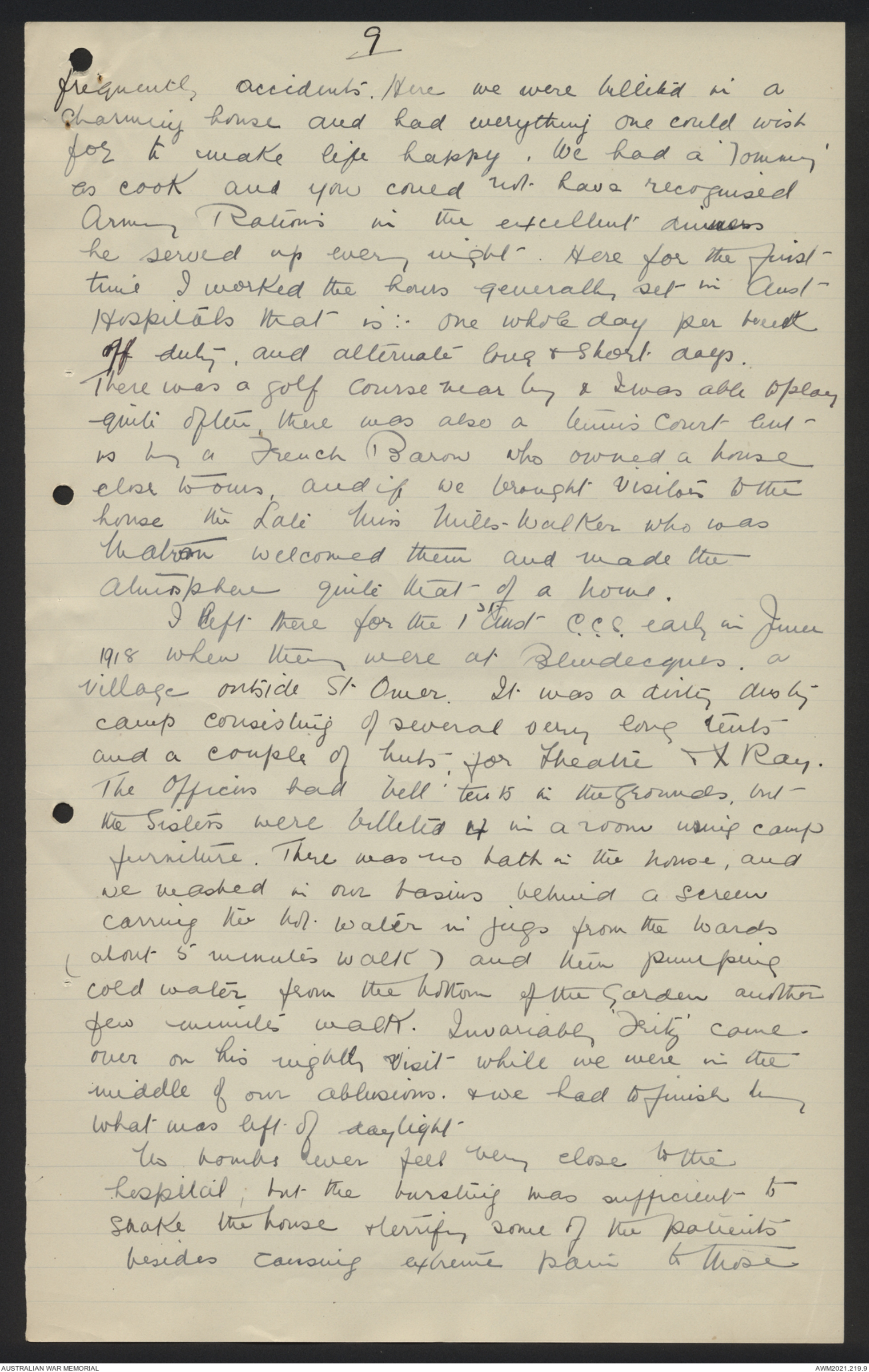
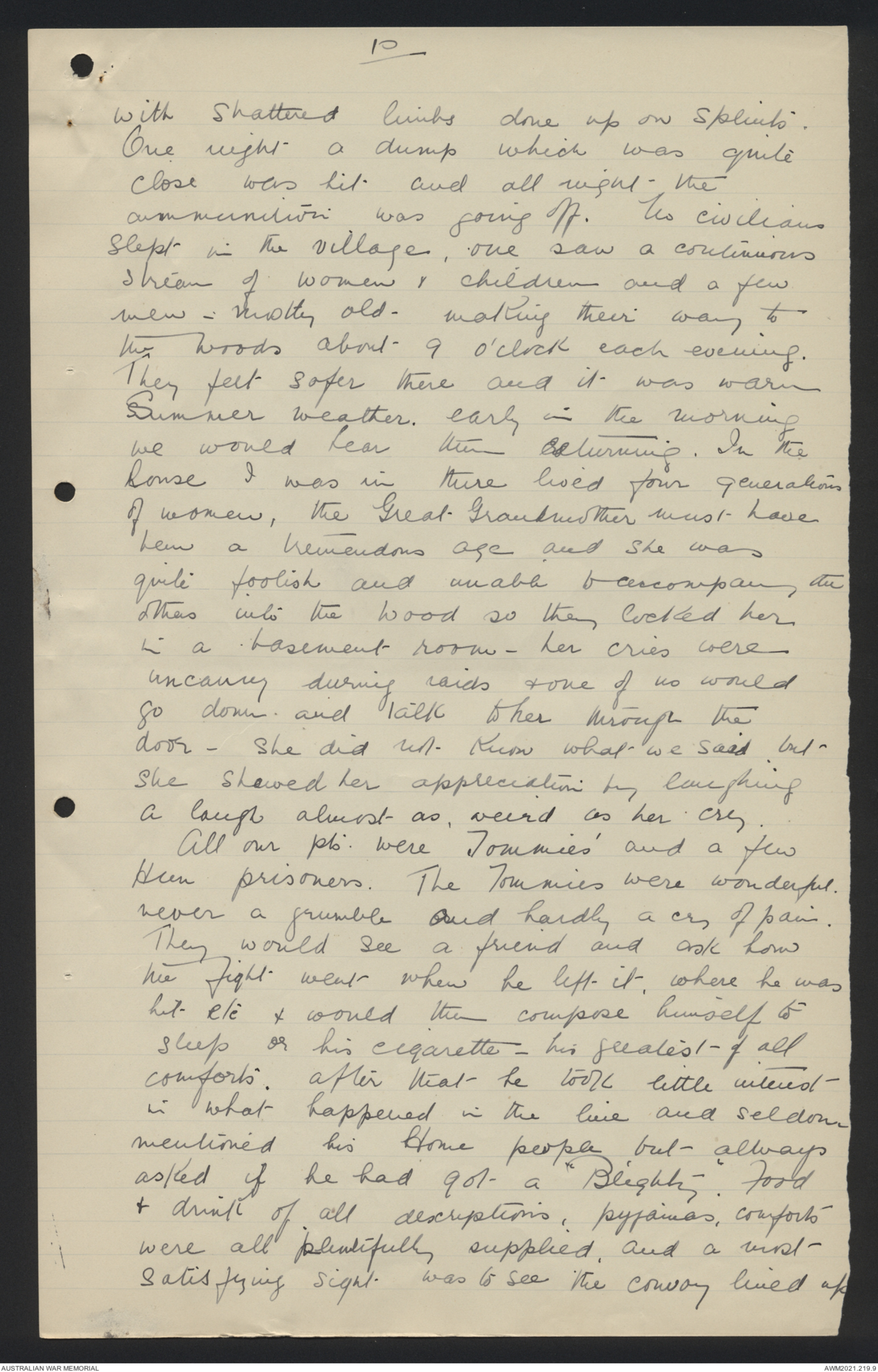
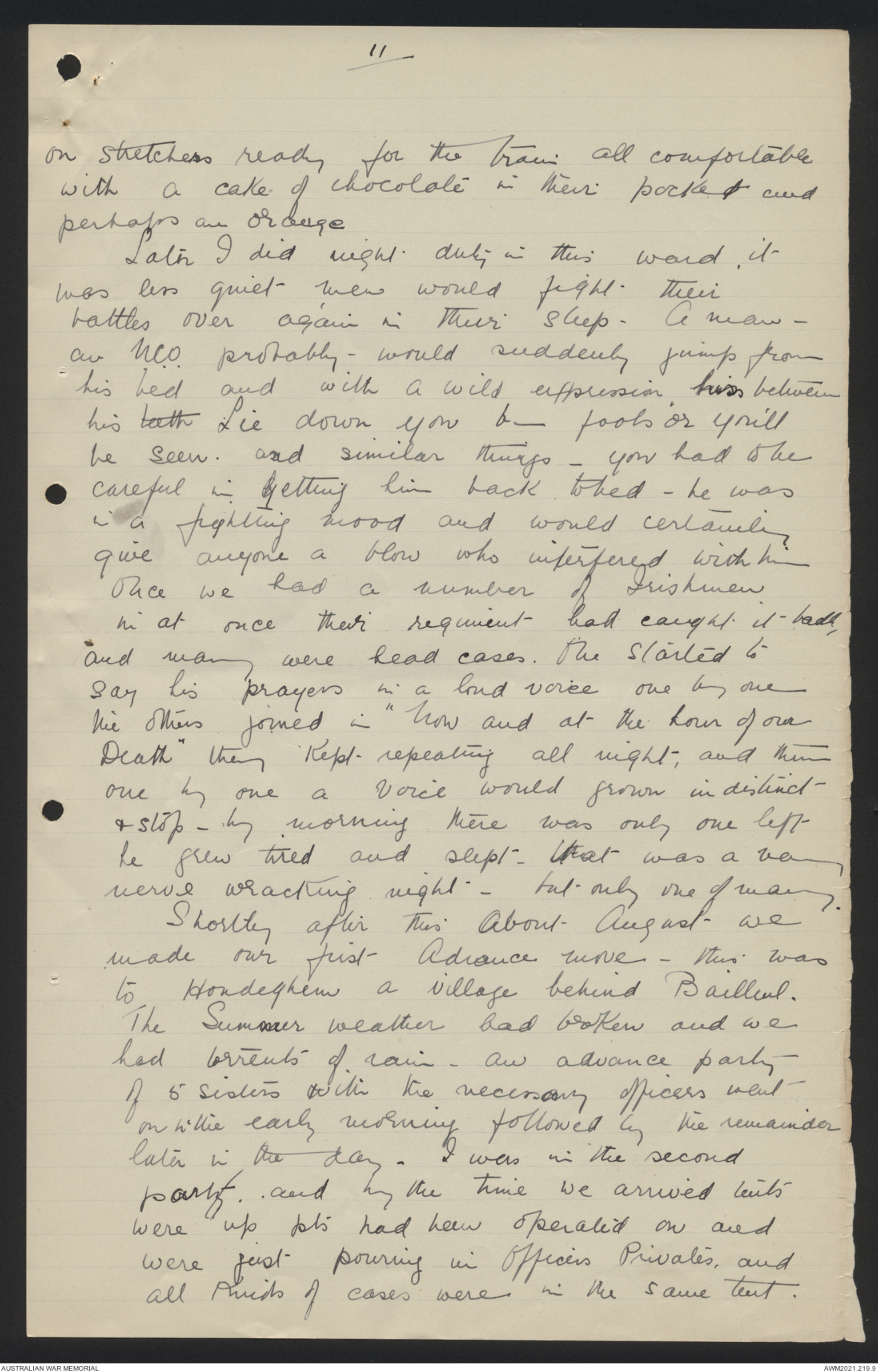
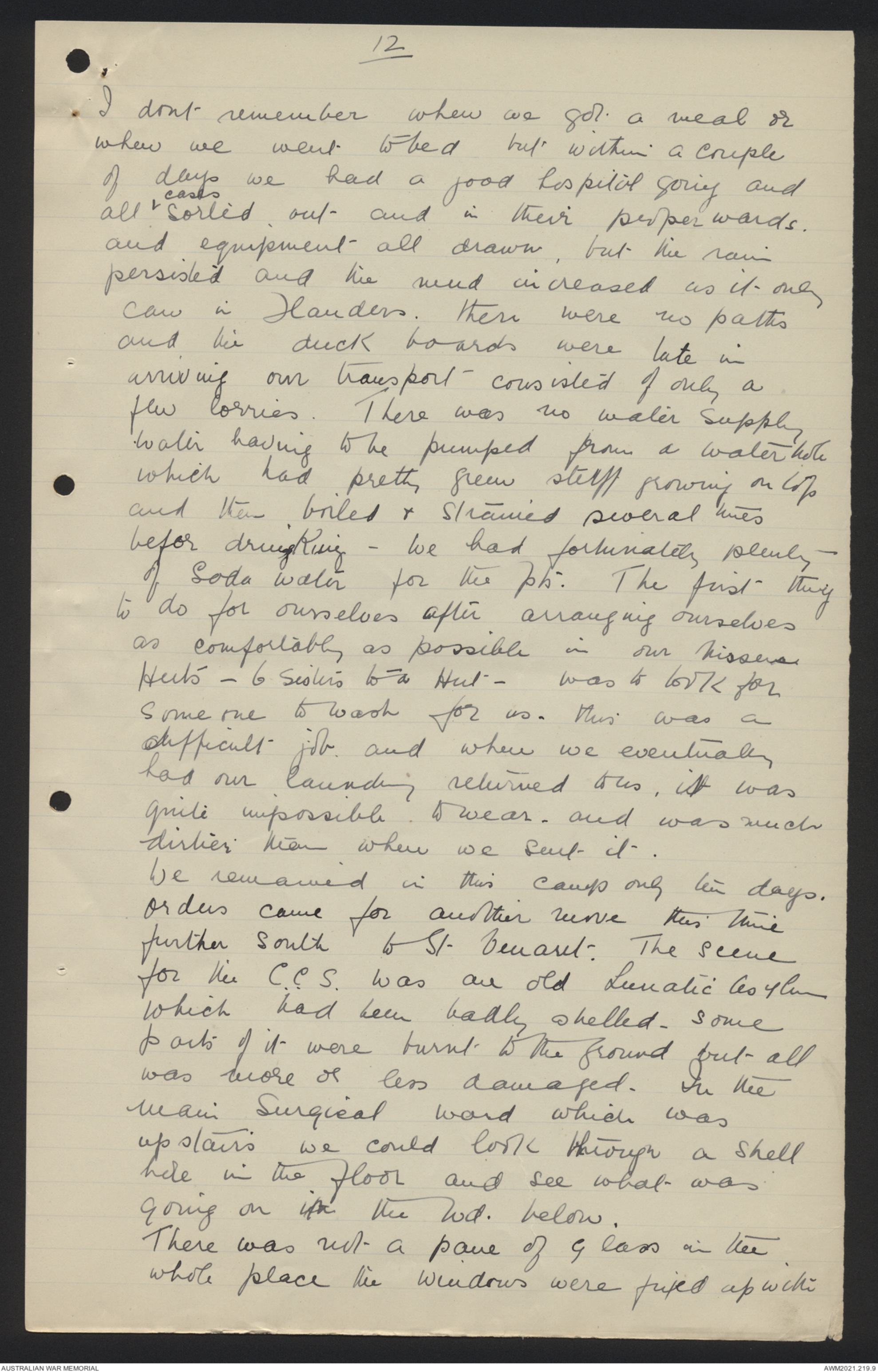
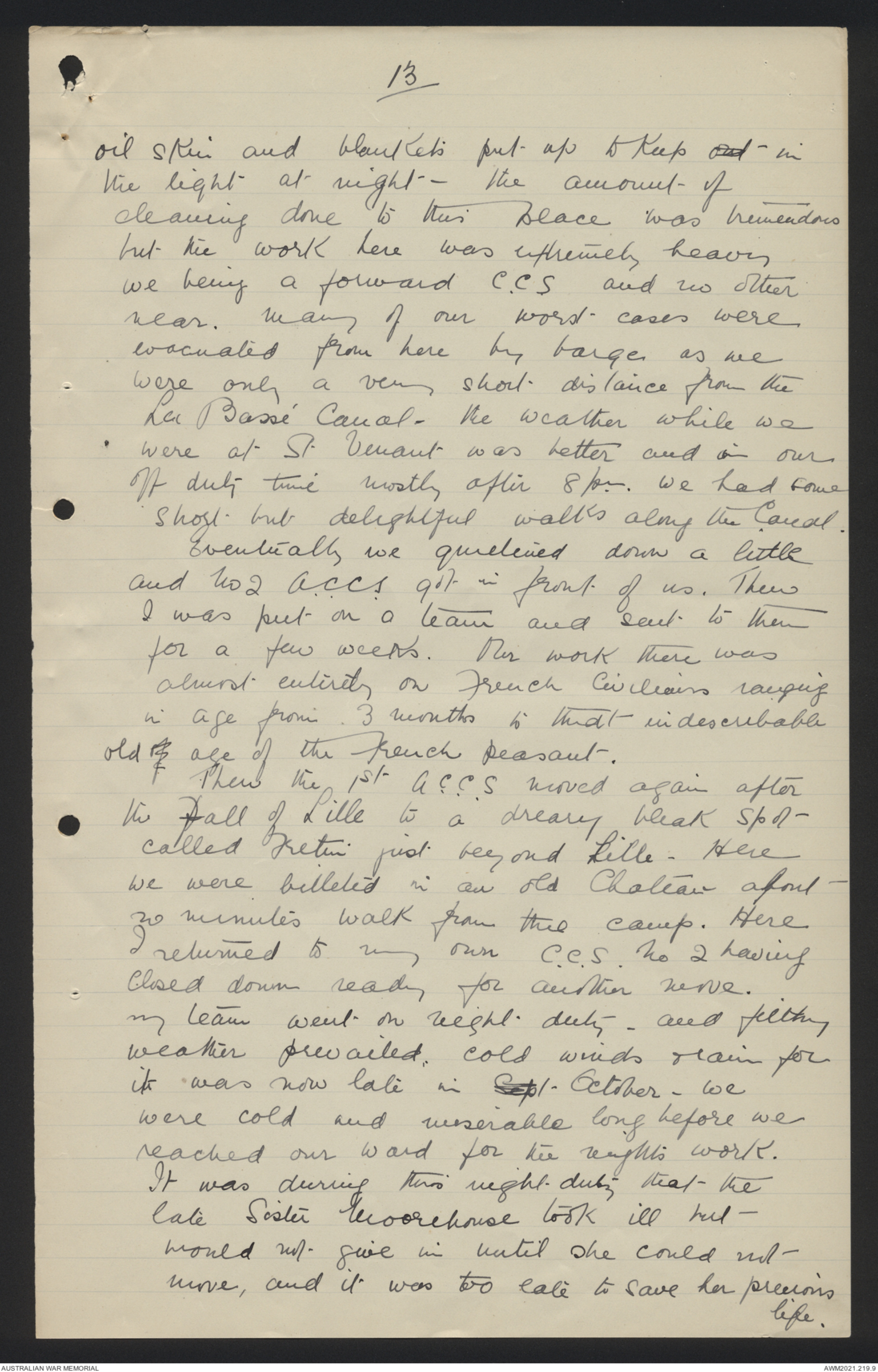
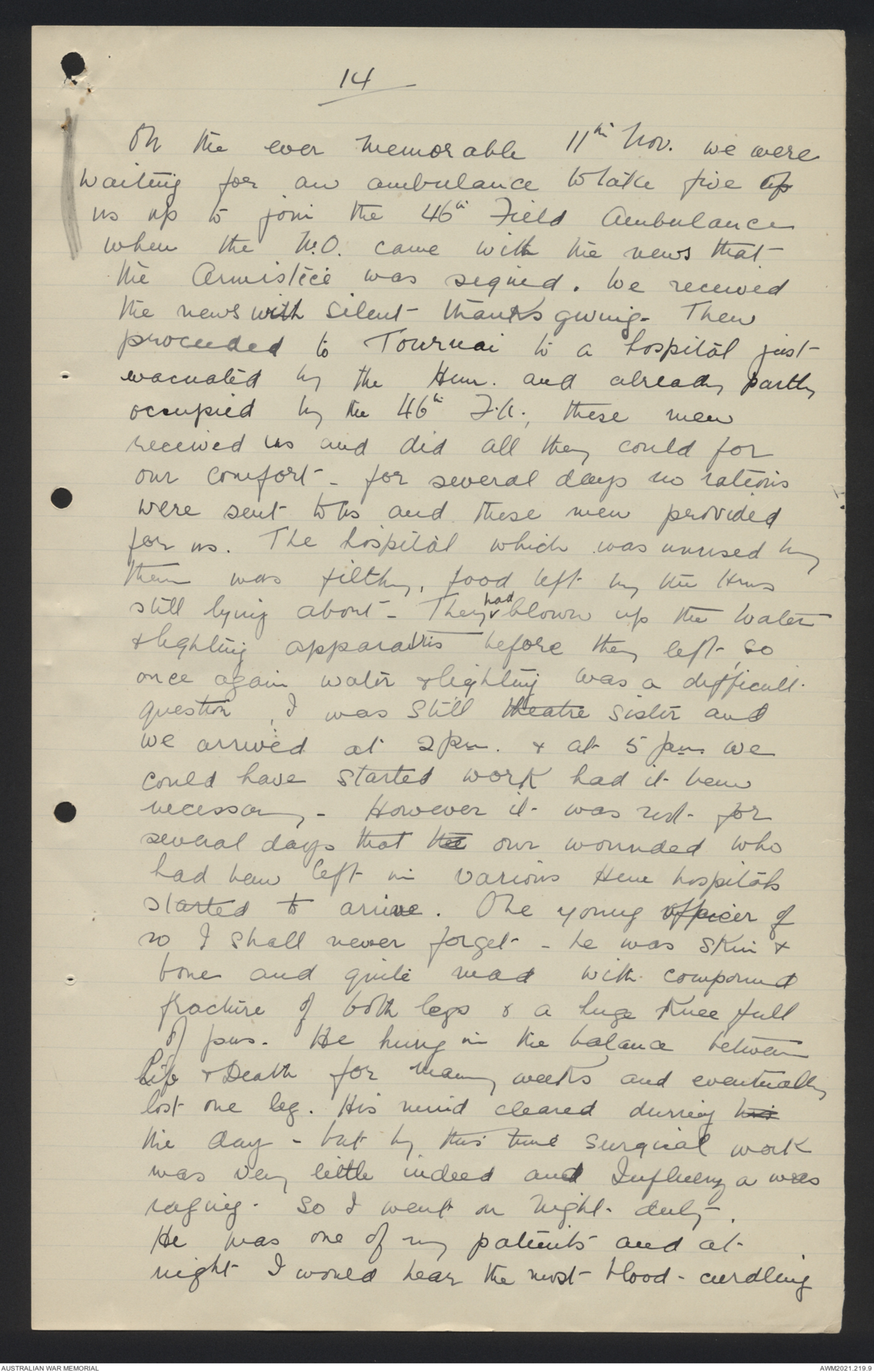
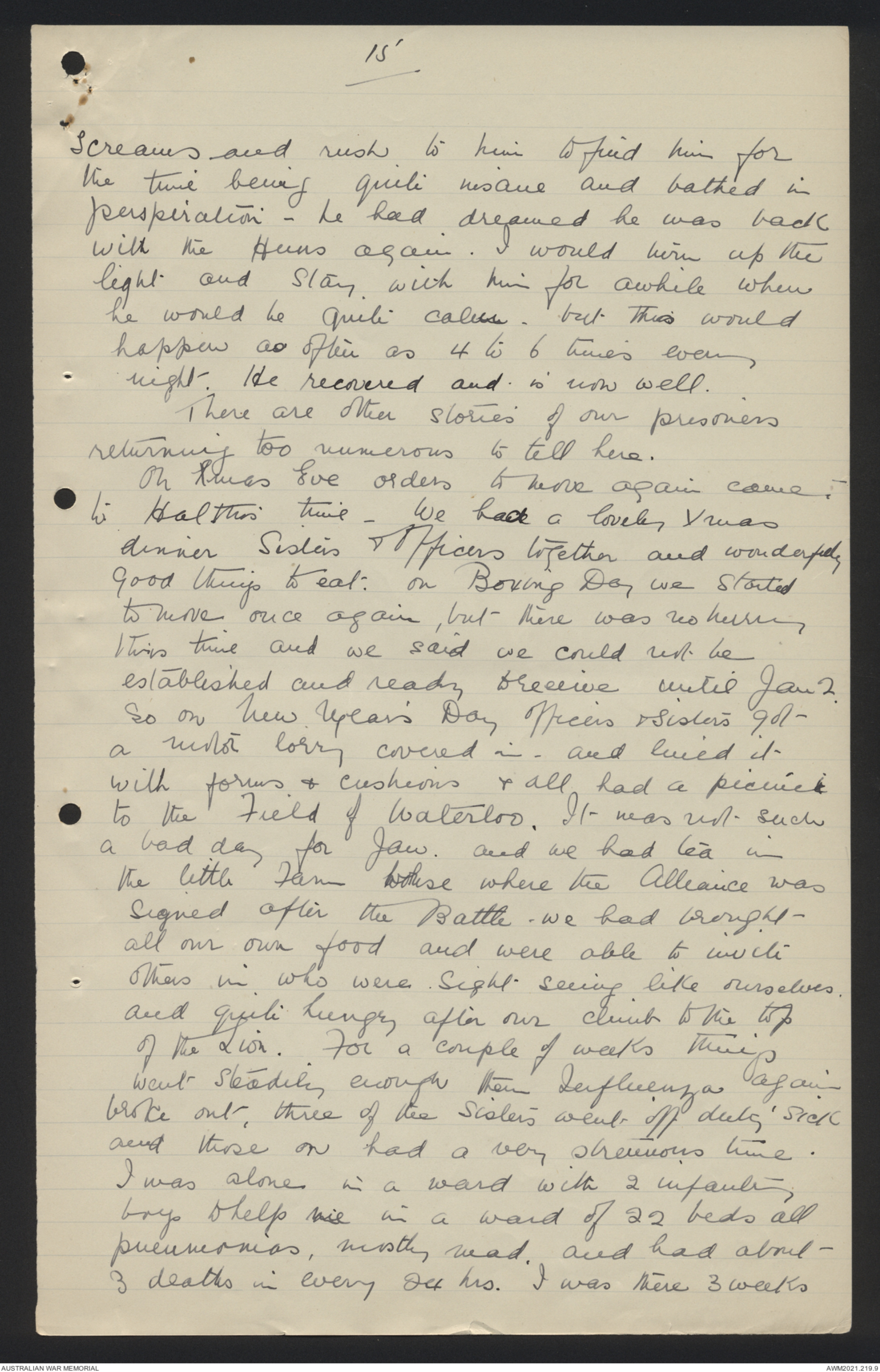
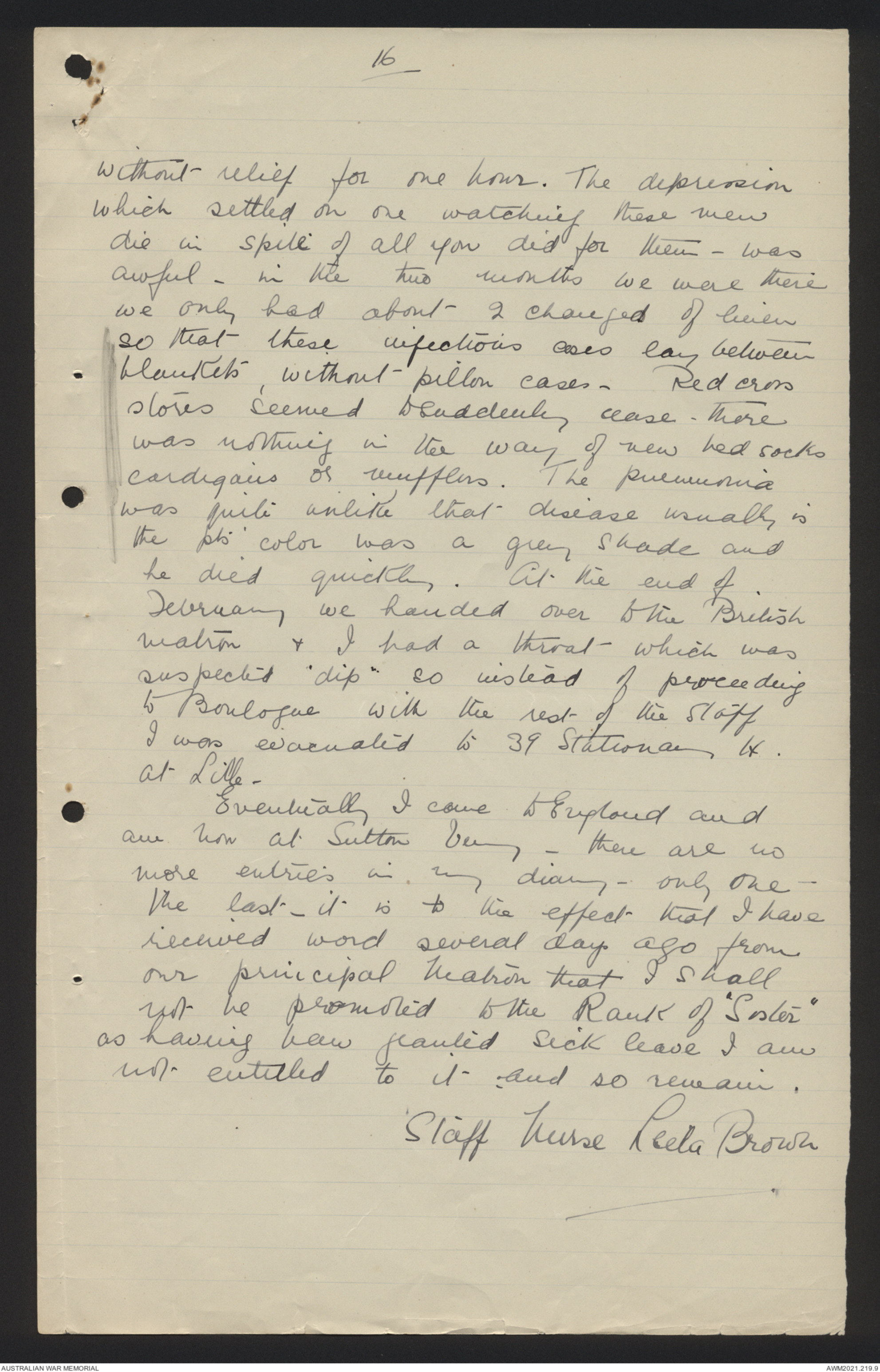
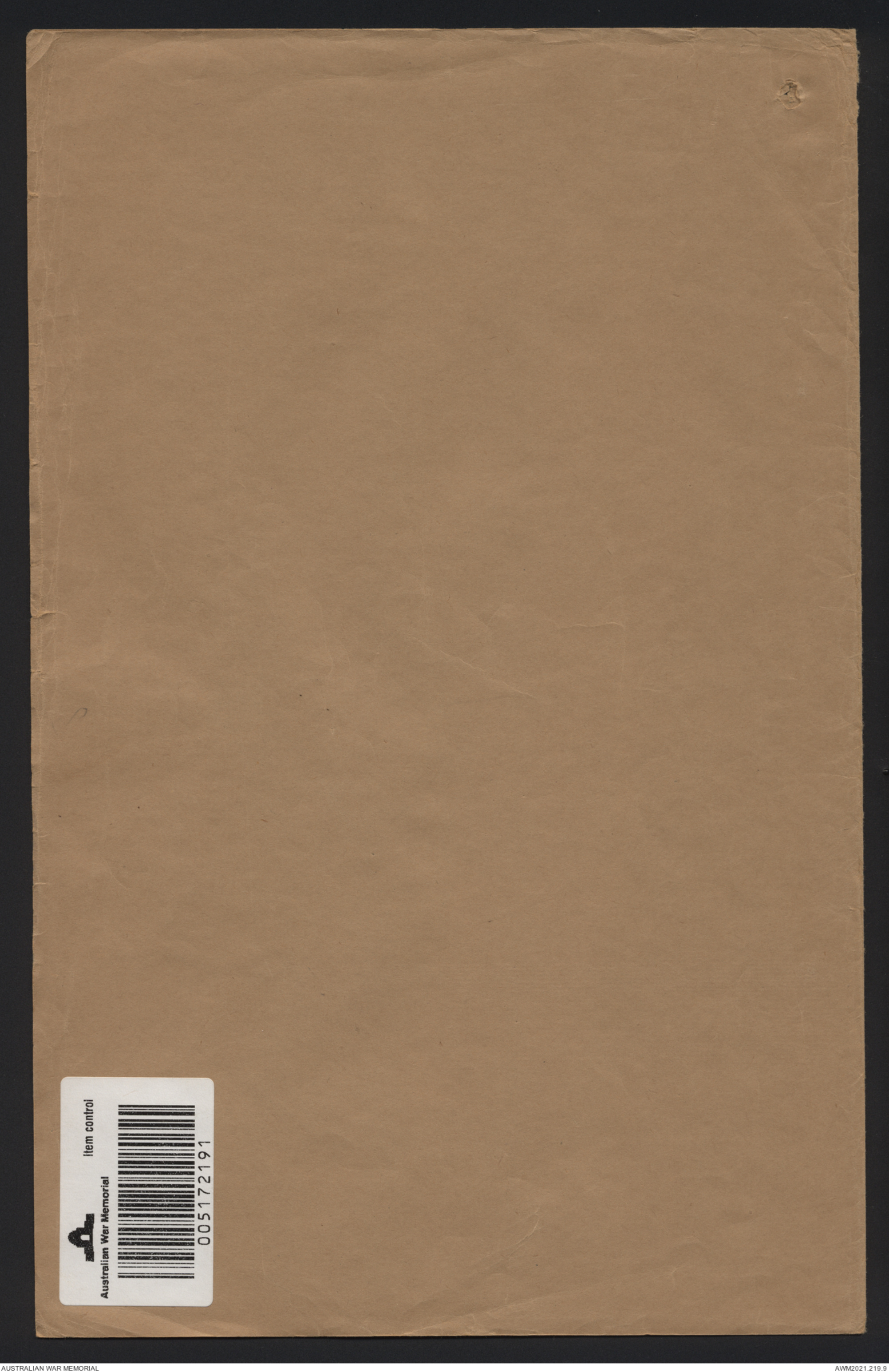
9.
frequent accidents. Here we were billeted in a charming house and had everything one could wish for to make life happy. We had a "Tommy" as cook and you could not have recognised Army ratios in the excellent dinners he served up every night. Here for the first time I worked the hours generally set in Aust. Hospitals that is : - One whole day per week off duty and alternate long and short days.
There was a golf course nearby & was able a play quite often, there was also a tennis court but is by a French Baron who owned a house close to ours and if we brought visitors to the house the late Mrs. Mills-Walker who was Matron welcomed them and made the atmosphere quite that of a home.
I left there for the 1st Aust. C.C.C. early in June 1918 when they were at Blendecques a village outside St. Owen. It was a dirty dusty camp consisting of several very long tents and a couple of huts for theatre & X-ray.
The officers had bell tents in the grounds, but the Sisters were billeted of in a room using camp furniture. There was no bath in the house, and we washed in our basins behind a screen carrying the hot water in jugs from the wards (about 5 mins walk)and their pumping cold water from the bottom of the garden another few minutes walk. Invariably "Fritz" came over on his nightly visit while we were in the middle of our ablutions & we had to finish by what was left of daylight.
The bombs never feel very close to the hospital but the bursting was sufficient to shake the house & terrify some of the patients besides causing extreme pain to those
10.
with shattered limbs done up in splints.
One night a dump which was quite close was lit and all night the ammunition was going off. Us civilians slept in the village, one saw a continuous stream of women & children and a few men - mostly old, making their way to the woods about 9 o'clock each evening.
They feel safer there and it was warm summer weather, early in the morning we would hear them returning. In the house I was in there lived four generations of women, the Great Grandmother must have been a tremendous age and she was quite foolish and unable to accompany the others into the wood so they locked her in a basement room - her cries were uncanny during raids & one of us would go down and talk to her through the door - she did not know what we said but she showed her appreciation by laughing a laugh almost as weird as her cry.
All our pts were "Tommies" and a few them prisoners. The Tommies were wonderful, never a grumble and hardly a cry of pain.
They would see a friend and ask how the fight went when he left it, where he was hit etc. & would then compose himself to sleep or his cigarette - his greatest of all comforts, after that he took little interest in what happened in the line and seldom mentioned his home people but always asked if he had got a "Blighty" Food & drink of all descriptions, pajamas, comforts were all plentifully supplied and a most satisfying sight was to see the convoy lived up
11.
On stretchers ready for the train all comfortable with a cake of chocolate in their pocket and perhaps an orange.
Later I did night duty in this ward, it was less quiet men would fight their battles over again in their sleep. A man - our N.C.O. probably - would suddenly jump from his bed and with a wild expression hiss between his teeth, Lie down you b--- fools or y'will be seen and similar things - you had to be careful in getting him back to bed - he was in a fighting mood and would certainly give anyone a blow who interfered with him.
Once we had a number of Irishmen in at once their regiment had caught it bad and many were head cases. He started to say his prayers in a loud voice one by one. Death they kept repeating all night, and then one by one a voice would grown in distinct & stop - by morning there was only one left he grew tired and slept - that was a very nerve wracking night - but only one of many.
Shortly after this about August we made our first advance move - this was to Hondeghem a village behind [[Baillend?]].
The summer weather had broken and we had torrents of rain - an advance party of 5 sisters with the necessary officers went on in the early morning followed by the remainder later in the day. I was in the second party and by the time we arrived tents were up [[pts?]] had been operated on and were just pouring in Officers Privates and all kinds of cases were in the same tent.
12.
I don't remember when we got a meal or when we went to bed but within a couple of days we had a good hospital going and all cases sorted out and in their proper wards and equipment all drawn, but the rain persisted and the need increased as it only can in Flanders, there were no paths and the duck boards were late in arriving our transport consisted of only a few lorries. There was no water supply, water having to be pumped from the waterhole which had pretty green stuff growing on top and then boiled steamed several times before drinking - we had fortunately plenty of soda water for the pb: The first thing to do for ourselves after arranging ourselves as comfortably as possible in our Mission Huts - 6 Sisters to a hut - was to look for someone to wash for us. This was a difficult job and when we eventually had our laundry returned to us, it was quite impossible to wear and was much dirtier than when we sent it.
We remained in this camp only ten days. Orders came for another move this time further south to St Venant.
The scene for the C.C.S. was an old Lunatic Asylum which had been badly shelled. Some parts of it were burnt to the ground but all were more or less damaged. In the main surgical ward which was upstairs we could look through a shell hole in the floor and see what was going on in the wd. below.
There was not a pane of glass in the whole place the windows were taped up with
13.
oil skin and blankets put up to keep in the light at night - the amount of cleaning done to this place was tremendous but the work here was extremely heavy we being a forward C.C.S and us often near. Many of our worst cases were evacuated from here by barge as we were only a very short distance from the La [[Basse?]] Canal. The weather while we were at St. Venant was better on our off duty time mostly after 8pm. We had some short but delightful walks along the canal.
Eventually we quietened down a little and No 2 A.C.C.S got in front of us. Then I was put on a team and sent to them for a few weeks. The work almost entirely on French Civilians ranging in age from 3 months to that indescribable old age of the French peasant.
Then the 1st A.C.C.S. moved again after the Fall of Lille to a dreary bleak spot called Fretin just beyond Lille. Here we were billeted in an old Chateau about 20 minutes walk from the camp. Here I returned to my own C.C.S. No 2 having closed down ready for another move.
My team went on night duty - and filthy weather prevailed, cold winds & rain for it was now late in October - we reached our ward for the nights work.
It was during this night duty that the late Sister Moorehouse took ill but - would not give in until she could not move, and it was too late to save her precious life.
14.
On the ever memorable 11th Nov. we were waiting for an ambulance to take five of us up to join the 46th Field Ambulance when the W.O. came with his news that the Armistice was signed. We received the news with silent thanksgivings. Then proceeded to Tournai to a hospital just evacuated by the Hun and already partly occupied by the 46th F.U., these men received us and did all they could for our comfort - for several days us rations were sent to us and these men provided for us. The hospital which was unused them was filthy, food left by the Huns still lying about - they had blown up the water & lighting apparatus before they left so once again water & lighting was a difficult question, I was still theatre sister and we arrived at 2pm & at 5pm we could have started work had it been necessary . However it was not for several days that our wounded who had been left in various Hun hospitals started to arrive. One young officer of so I shall never forget - he was skin & bones and quite mad with compound factures of both legs & a huge knee full of pus. He hung in the balance between life & death for many weeks and eventually lost one leg. His mind cleared during the day - but by this time surgical work was very little indeed and Influenza was raging. So I went on night duty - He was one of my patients and at night I would hear the most blood curdling
15.
screams and run to him to find him for the time being quite insane and bathed in persperation - he had dreamed he was back with the Huns again. I would turn up the light and stay with him a while when he would be quite calm, but this would happen as often to 4 to 6 times every night. He recovered and is now well.
There are other stories of our prisoners returning too numerous to tell here.
On Xmas Eve orders to move again came, to Hal this time - we had a lovely Xmas dinner, Sisters & Officers together and wonderfully good things to eat. On Boxing Day we started to move once again, but there were no nursing this time and we said we could not be established and ready to receive until Jan 2. So on New Year's day officers & sisters got a motor lorry covered & and lines it with forms & cushions & all had a picnic to the Field of Waterloo. It was not such a bad day for Jan. and we had tea in the little farm house where the Alliance was signed after the Battle. We had brought all our own food and were able to invite others in who were sight seeing like ourselves and quite hungry after our climb to the top of the Lion. For a couple of weeks things went steadily enough then Influenza again broke out, three of the Sisters went off duty "SICK" and those on had a very strenuous time. I was alone in a ward with 2 infantry to help me in a ward of 22 beds all pneumonias, mostly mad and had about 3 deaths in every 24 hrs. I was there 3 weeks
16.
without relief for me hour. The depression which settled on one watching these men die in spite of all you did for them was awful - in the two months we were there we only had about 2 changes of linen so that these infectious cases lay between blankets without pillow cases. Red Cross stores seemed to suddenly cease. There was nothing in the way of new bed socks cardigans or mufflers. The pneumonia was quite unlike that disease usually is the pts color was a grey shade and he died quickly. At the end of January we handed over to the British Matron & I had a throat which was suspected "dip" so instead of proceeding to Boulogne with the rest of the staff I was evacuated to 39 Stationary H. at Lille.
Eventually I came to England and now at Sutton Veny - there are no more entries in my diary - only one the last - it is to the effect that I have received word several days ago from our principal matron that I shall not be promoted to the rank of "Sister" as having been granted sick leave I am not entitled to it and so remain.
Staff Nurse Leela Brown
Australian War Memorial
Item Control
005172191
 Sue Ducker
Sue DuckerThis transcription item is now locked to you for editing. To release the lock either Save your changes or Cancel.
This lock will be automatically released after 60 minutes of inactivity.